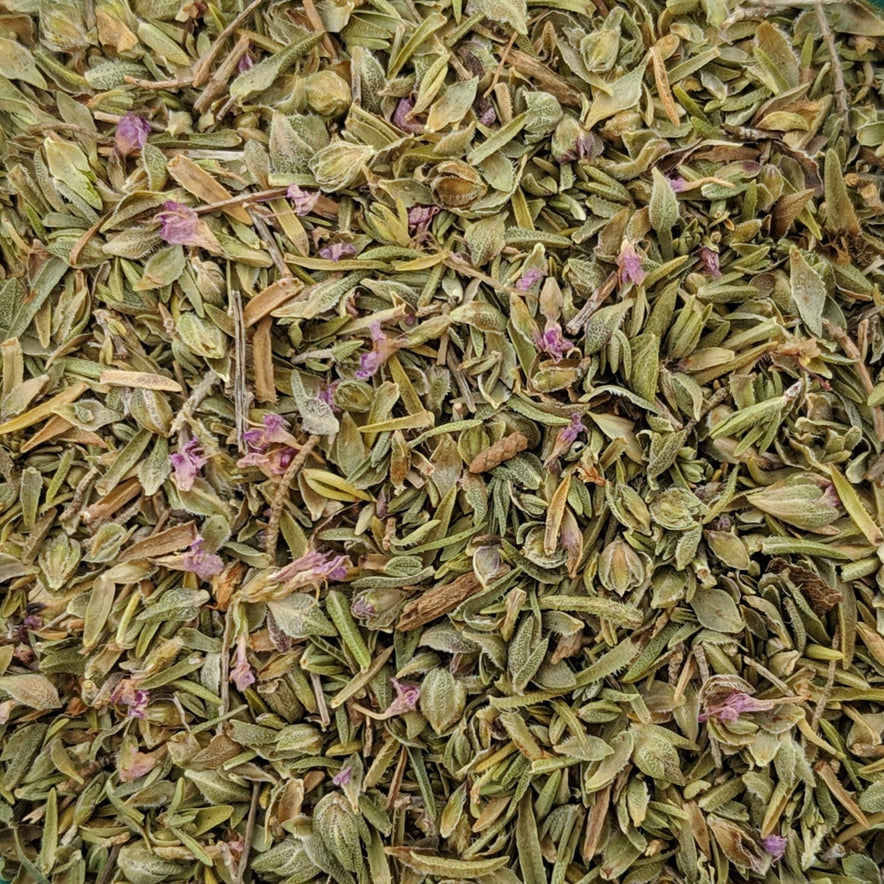
Cretan Thyme Wild (Coridothymus Capitatus)
Thymus capitatus is one of the most common phrygana shrubs in Crete, it is found in dry and stony locations, phrygana and stony locations, and is very tolerant to the summer drought. Wild Cretan thyme, is an important nectar source plant for honeybees; it contributes to the production of some of the best thyme honey.
Back in ancient times, it was associated with courage, bravery, and strength. Roman soldiers exchanged sprigs of the herb as a sign of respect. Both Greeks and Romans burned bundles of thyme to purify their homes and temples. They also commonly used it medicinally in their bathwater and consumed it to prevent and treat poisoning.
The principal component of thyme is thymol, which gives it its antiseptic properties. Additionally, thyme contains another bacteria fighter known as carvacrol and also has a variety of flavonoids. These flavonoids increase the herb’s antioxidant capacity and other health-promoting effects.
This herb has a long history of use in natural medicine and a proven track record as a natural medicine that can fight off bacteria. Before the advent of modern antibiotics, it was used to medicate bandages. It has also been shown to be effective against the fungus that commonly infects toenails. Thyme uses also include fighting infections that affect the mouth, teeth, digestive system, and respiratory systems, such as coughs, bronchitis, and sore throats.
Medicinally, thyme is used for respiratory infections in tinctures, tisane, salve, syrup, or steam inhalation. Because it is antiseptic, thyme boiled in water and cooled is very effective against throat inflammation when gargled 3 times a day. The inflammation will typically disappear in 2 - 5 days. Other infections and wounds can be dripped with thyme that has been boiled in water and cooled, as it is antibacterial, antispasmodic, expectorant, astringent, antioxidant, and tonic.
Other health benefits of thyme include helping to lower blood pressure, boost your mood, and support oral/dental health. Thyme also has immunomodulatory effects and may be able to help treat autoimmune conditions.
Use
Thyme is an essential spice in Greek cuisine. Its earthy, lemony, and minty flavor makes it a tasty addition to chicken, fish, beef, lamb, vegetables (especially green beans, eggplant, carrots, and zucchini), cheese (especially goat cheese), pasta dishes, soups, stews, stocks, sauces, eggs, dressings, and marinades for starters.
Notes
◉ Should be stored in airtight glass containers -in a cool, dark, and dry place- to preserve the flavor, texture, and properties.
